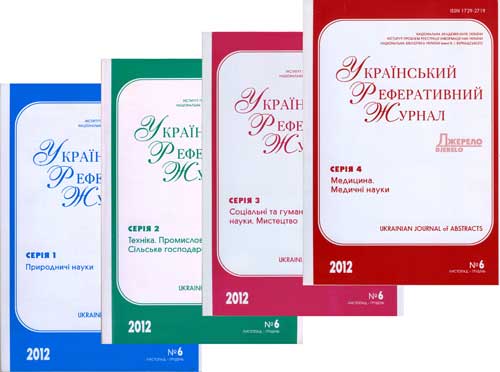РЕФЕРАТИВНА БАЗА ДАНИХ "УКРАЇНІКА НАУКОВА"
Abstract database «Ukrainica Scientific»
Бази даних
Реферативна база даних - результати пошуку
|
|
Пошуковий запит: (<.>ID=REF-0000695652<.>) | |||
|
Загальна кількість знайдених документів : 1 |
|||
Бортнічук Л. І. Активність канонічного Wnt-сигналінгу при формуванні атлетичного міокарда / Л. І. Бортнічук, А. О. Миронова, Д. С. Аврамець, В. В. Балацький, Л. Л. Мацевич, О. О. Півень // Експерим. та клініч. фізіологія і біохімія. - 2018. - № 3. - С. 33-39. - Бібліогр.: 22 назв. - укp. To understand the signaling pathway involvement in the regulation of adult heart remodeling is crucial for the heart biological development as well as for clinicians. One of such signaling mechanism is canonical Wnt or Wnt/beta-catenin signaling which is involved in cardiogenesis and adult heart remodeling. The requirements for canonical Wnt and beta-catenin for heart hypertrophy are not fully understood and controversial. Many transgenic and knockout mice models were used for studying the canonical Wnt role in adult heart remodeling. Some authors suggested that canonical Wnt and beta-catenin are not essential for the hypertrophic response; but others showed involvement of this signaling pathway in the heart hypertrophy. The function of canonical Wnt in the athletic heart formation is not clear and has not been analyzed yet. Here we have focused on the analysis of canonical Wnt signaling during adult heart adaptation to physical training. With mice model and molecular genetic methods (qPCR), we have analyzed heart adaptation (Anp and Bnp genes expression level). The activity of canonical Wnt was studied after 1 week and 1 month of training: Axin2 and c-Myc genes expression as well as the level of phosphorylated GSK3beta protein were analyzed (with Western-blot using). In this work we have used a standard swimming test for hypertrophic response induction. As a result of our experiment, we have registered the higher level of Anp and Bnp genes expression in mice hearts after 1 month of experiment that is remarkable for the heart hypertrophy. It is interesting that hypertrophic genes were expressed at the lower level after 1 week of training as compared with the control group and 1 month of exercises. The analysis of HW/BW index in the connection with these data has supported the hypertrophy response in trained mice after one month. Thus, the obtained data have clearly indicated the heart hyper-trophy development in mice after 1 month of swimming. On the other hand, the histological analysis (hematoxylin-eosin and Van Gison staining) of paraffin embedded transversional heart sections has not revealed any morphological malformations or/and heart tissue fibrosis in the trained heart after 1 week as well as 1 month of experiment. Thus, we can assume that in our model we have developed the physiological hypertrophy in mice. For recovering of canonical Wnt involvement in the heart adaptation we have analyzed the level of beta-catenin target genes expression with qPCR usage. Also we have checked the level of total and phosphorylated GSK3beta protein - the main component of beta-catenin degradation complex. We have found out the increase of Axin2 gene expression after 1 week and the decrease after 1 month of training. The higher level of phosphorylated GSK3beta protein after 1 week of experiment also suggested the canonical Wnt signaling activation in hearts after 1 week of exercises and the downregulation after 1 month of training. It is known that higher level of phosphorylated GSK3beta is correlated with the activated beta-catenin level. Індекс рубрикатора НБУВ: Е0*556 + Е70*732.122 Рубрики: Шифр НБУВ: Ж16160 Пошук видання у каталогах НБУВ Додаткова інформація про автора(ів) публікації: (cписок формується автоматично, до списку можуть бути включені персоналії з подібними іменами або однофамільці)
| |||
| Національна бібліотека України імені В. І. Вернадського |
 |
| Відділ наукового формування національних реферативних ресурсів |
 |
| Інститут проблем реєстрації інформації НАН України |
Всі права захищені © Національна бібліотека України імені В. І. Вернадського